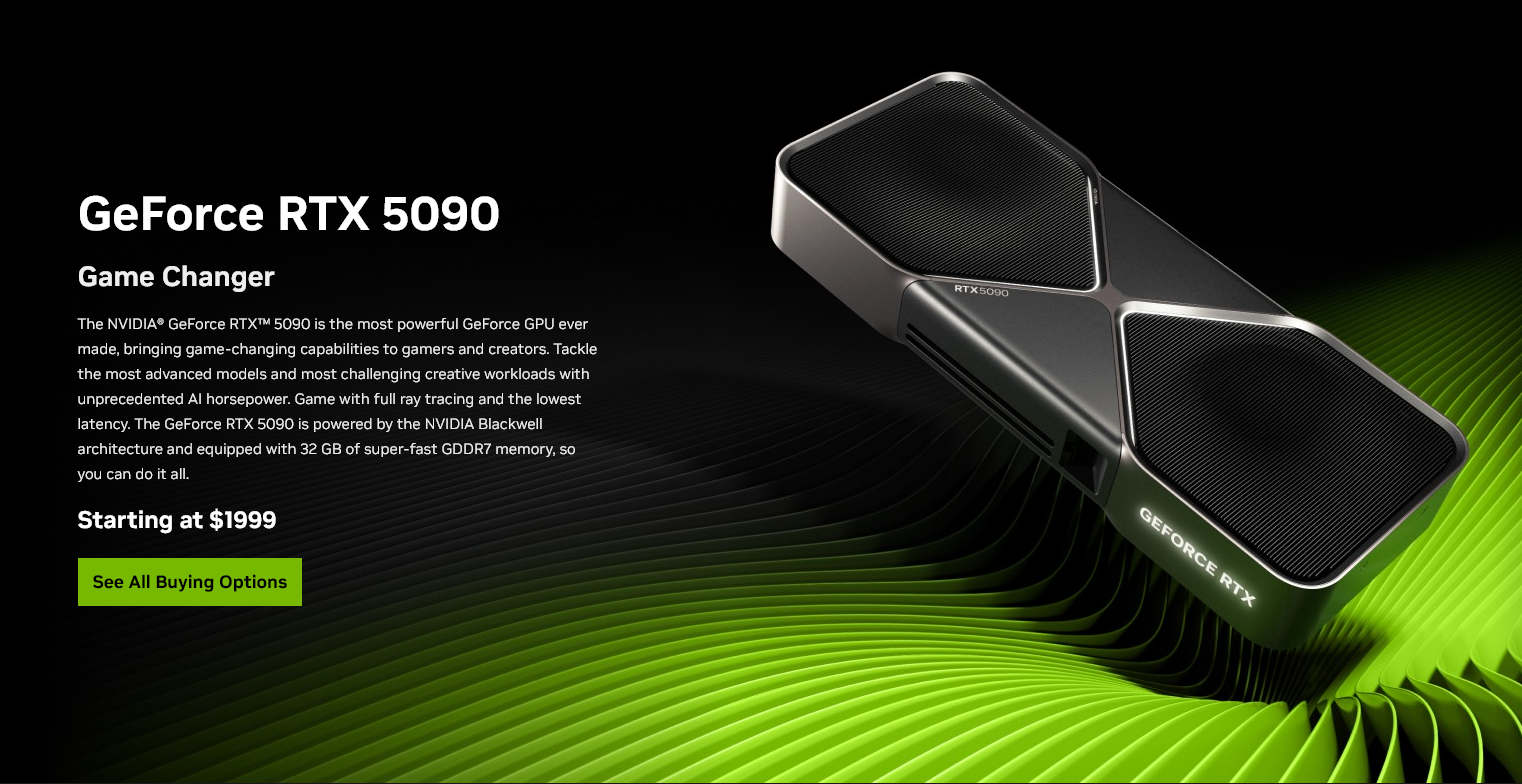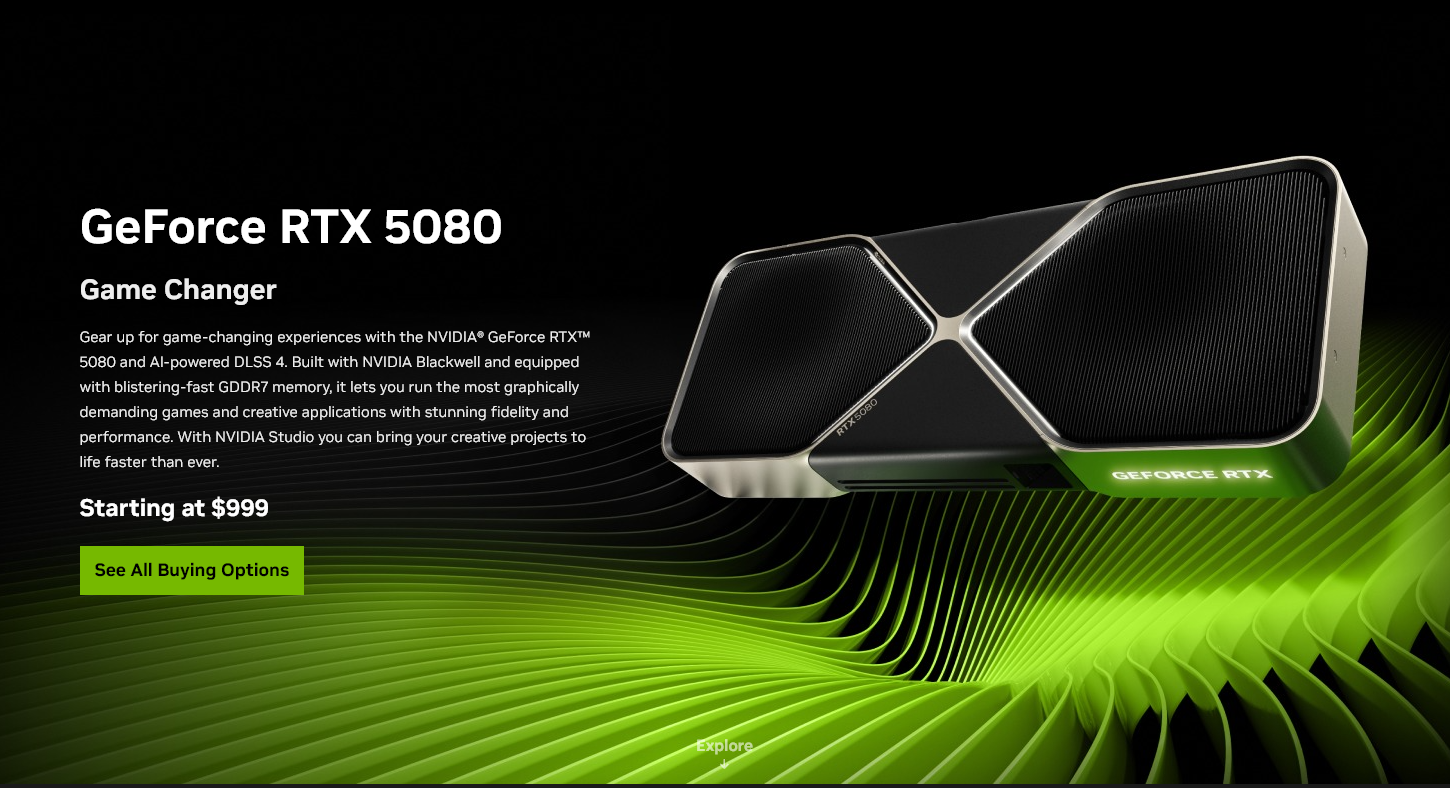Explore the features, performance benchmarks, and market availability of NVIDIA’s latest GeForce RTX 5090 and 5080 graphics cards. Learn about DLSS 4 technology, power requirements, and pricing to make an informed purchasing decision.

NVIDIA’s GeForce RTX 5090 and 5080: A Comprehensive Analysis
NVIDIA has recently unveiled its latest flagship graphics cards, the GeForce RTX 5090 and RTX 5080, marking a significant leap in gaming and professional graphics performance. These new additions to the RTX 50 series promise enhanced capabilities, driven by advanced AI and neural rendering technologies.

Key Features and Innovations
- DLSS 4 Technology: Both the RTX 5090 and 5080 are equipped with NVIDIA’s latest Deep Learning Super Sampling (DLSS) 4. This technology utilizes AI to generate additional frames, significantly boosting frame rates in demanding games. For instance, in titles like Cyberpunk 2077 and Star Wars Outlaws, DLSS 4 can increase performance up to eight times compared to traditional rendering methods.
- Enhanced Specifications:
- RTX 5090: Features 21,760 CUDA cores and 32 GB of GDDR7 memory, delivering a 20-40% performance increase over its predecessor, the RTX 4090.
- RTX 5080: While specific details are less highlighted, it serves as a more affordable option within the RTX 50 series, offering substantial performance improvements over previous generations.
- Compact Design with High Power Requirements: The RTX 5090 boasts a compact form factor suitable for smaller cases but demands a robust power supply, rated at 575 watts, necessitating at least a 1,000-watt PSU for optimal performance.
Click here for Complete Specifications
Market Availability and Demand
NVIDIA has cautioned consumers about potential stock shortages due to high demand. Despite efforts to supply retailers continuously, enthusiasts may face challenges securing these cards immediately upon release. Reports indicate that some retailers anticipate delays, with availability potentially extending into February or beyond.
Pricing and Value Proposition
The RTX 5090 is priced at approximately $2,000, reflecting its position as a premium offering for gaming enthusiasts and professionals seeking top-tier performance. The RTX 5080 provides a more budget-friendly alternative, though specific pricing details are pending. Prospective buyers should consider their performance needs and budget constraints when choosing between these models.
Pros and Cons of NVIDIA GeForce RTX 5090 & 5080
Pros
✅ Unparalleled Performance – The RTX 5090 delivers a significant boost in performance over the previous generation, making it ideal for 4K and 8K gaming.
✅ DLSS 4 Technology – AI-powered frame generation enhances performance and smoothness, reducing the need for native rendering at high resolutions.
✅ Future-Proofing – With cutting-edge architecture, GDDR7 memory, and enhanced ray tracing, these GPUs are built to handle upcoming AAA titles effortlessly.
✅ Compact and Efficient Cooling – Despite its power, NVIDIA has optimized the cooling system to maintain efficiency while keeping temperatures in check.
✅ Great for Content Creators – Faster rendering times, real-time ray tracing, and AI-driven tools benefit professionals in 3D modeling, video editing, and AI applications.
Cons
❌ High Power Consumption – The RTX 5090 requires a robust power supply (recommended 1,000W PSU), making it less power-efficient than some competitors.
❌ Expensive Price Tag – The premium price of around $2,000 may be out of reach for many gamers, making it more suited for enthusiasts and professionals.
❌ Potential Stock Shortages – Due to high demand, securing one of these GPUs at launch may be challenging. Scalpers could also drive up resale prices.
❌ Overkill for 1080p Gaming – If you’re only gaming at 1080p, the RTX 5090’s power is largely unnecessary, making the RTX 5080 or previous-gen GPUs a better investment.
Conclusion
NVIDIA’s GeForce RTX 5090 and 5080 represent significant advancements in graphics technology, offering substantial performance enhancements through innovations like DLSS 4. However, potential buyers should be prepared for limited initial availability and ensure their systems meet the power requirements to fully leverage these new GPUs.
Frequently Asked Questions (FAQs)
1. When will the NVIDIA RTX 5090 and 5080 be available?
NVIDIA has announced the launch, but due to high demand, some regions may experience stock shortages. Check official NVIDIA partners for availability updates.
2. What are the power requirements for the RTX 5090?
The RTX 5090 requires a 1,000W power supply or higher for stable performance, while the RTX 5080 has a lower but still considerable power draw.
3. How much better is the RTX 5090 compared to the RTX 4090?
Performance benchmarks suggest a 20-40% increase in gaming and content creation tasks, making it one of the biggest generational leaps.
4. Can I use the RTX 5090 for AI and machine learning?
Yes, the RTX 5090 features enhanced Tensor Cores and AI acceleration, making it an excellent choice for deep learning, AI training, and professional workloads.
5. Is the RTX 5080 a better value than the RTX 5090?
The RTX 5080 provides high-end performance at a lower price, making it a better value for gamers who don’t need the absolute best specs.


Pingback: "You're Cordially Invited" Review: Reese Witherspoon and Will Ferrell Shine in Wedding Comedy - USA Varthapedia - Latest News, Insights, and Updates Across America
Pingback: Kendrick Lamar's 'Not Like Us' Triumphs at 2025 Grammys Amid Drake Feud - USA Varthapedia - Latest News, Insights, and Updates Across America
Pingback: Kendrick Lamar's Net Worth in 2025: A Comprehensive Analysis - USA Varthapedia - Latest News, Insights, and Updates Across America